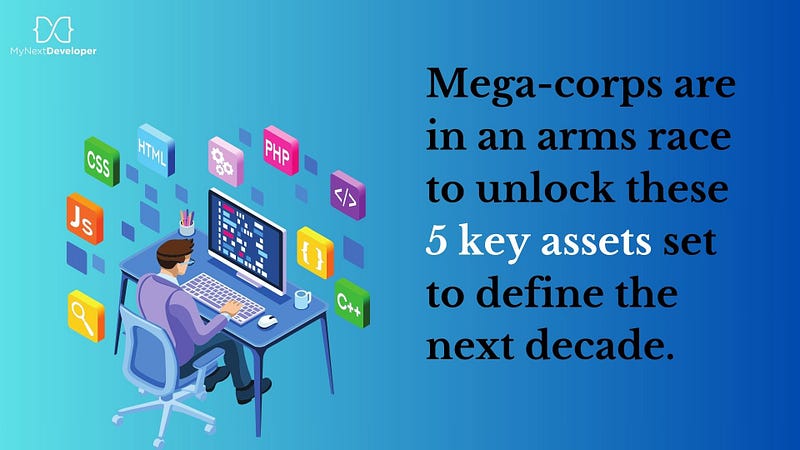Is the debate about “C++ dead” more about language evolution or developer preferences?
Is the debate about “C++ dead” more about language evolution or developer preferences?

The debate about whether “C++ is dead” revolves more around language evolution and developer preferences rather than the actual demise of the language. Despite some misconceptions, C++ remains a powerful and relevant language in various domains.
Language Evolution vs. Developer Preferences in the C++ Debate
- Language Evolution: C++ continues to evolve with new features and improvements, as seen in C++23’s “Deducing this” feature. These advancements enhance the language’s capabilities and maintain relevance in modern software development.
- Developer Preferences: The perception of C++ being “dead” often stems from individual preferences and misconceptions. While some find memory management challenging, others appreciate the language’s power and flexibility.
Advantages and Disadvantages of C++ Compared to Other Programming Languages
Advantages of C++:
- Portability: C++ offers platform independence, allowing programs to run on different systems without modification.
- Object-Oriented: C++ excels in object-oriented programming, providing features like classes, inheritance, and polymorphism for code reusability and reliability.
- Low-Level Manipulation: C++ allows for low-level data manipulation, making it suitable for embedded systems and compiler development.
- Memory Management: C++ provides total control over memory management, offering efficiency and flexibility through dynamic memory allocation.
- Multi-Paradigm: C++ supports multiple programming paradigms, including generic, imperative, and object-oriented, enhancing its versatility.
- Compatibility with C: C++ is compatible with C, allowing seamless integration and execution of C programs within C++ environments.
- Scalability: C++ is scalable and capable of handling small to large-scale applications and resource-intensive tasks.
- Standardization: As an ISO standard language, C++ follows well-defined rules, making it easy for developers worldwide to understand and use.
Disadvantages of C++:
- Complexity: C++ is more complex than some languages, requiring a deeper understanding of concepts like object-oriented programming, which can be challenging for beginners.
- Lack of Modern Support: C++ lacks support for modern programming concepts like functional programming and automatic memory management found in newer languages.
- Pointer Issues: C++ poses challenges with pointers, making it difficult to identify and resolve pointer-related bugs, especially in memory corruption scenarios.
- No Garbage Collection: One major drawback of C++ is the absence of a garbage collection feature, requiring manual memory management and increasing the risk of memory-related errors.
Importance of C++ in Modern Development
- Memory Management: C++ offers fine-grained control over memory management, which can be seen as a strength, or a challenge based on developers’ perspectives.
- High-Level Capabilities: Despite its reputation for complexity, C++ can serve as a high-level language for beginners, especially when leveraging libraries and modern features.
- Industry Relevance: C++ remains widely used in critical applications like game development, system programming, and performance-critical software due to its efficiency and performance benefits.
Most common applications of C++ in the industry
- Game Development: C++ is widely used in game development, powering popular games like World of Warcraft, Counterstrike, and StarCraft. Game engines like Unreal Engine are also written in C++.
- Operating Systems: C++ plays a crucial role in developing operating systems such as MacOS, Windows, and mobile OS like iOS. Its low-level capabilities enable developers to create fast and energy-efficient systems.
- Database Management: C++ is used to build popular database tools like MySQL and MongoDB, which are integral to many applications used by organizations like Google, Netflix, YouTube, and Adobe.
- Embedded Systems: C++ is essential for developing embedded systems found in IoT devices, consumer electronics, smartwatches, medical equipment, and automotive applications. Its ability to control resources efficiently is crucial for these devices.
- Enterprise Software: C++ is utilized in developing enterprise software and advanced applications like flight simulation, radar processing, and financial systems. Its speed, reliability, and control over hardware resources make it a preferred choice for such applications.
- Graphics and Multimedia: C++ is commonly used in applications requiring real-time physical simulations, high-performance image processing, and multimedia software like Adobe products, Winamp media player, and 3D modelling software like Maya.
- Cloud Computing and Distributed Applications: C++ is favoured for implementing cloud storage systems due to its compatibility with machines and multithreading support. Applications like Bloomberg’s distributed RDBMS rely on C++ for their development environment and libraries.
- Automotive Industry: C++ is increasingly used in the automotive sector for developing modern software for autonomous driving functions. Its object-oriented nature and efficiency in optimizing embedded environments make it suitable for modelling real-world entities in vehicles.
- High-Performance Computing: C++ is preferred for applications requiring high-level mathematical computations, performance, and speed. It serves as a core programming language for libraries supporting machine learning, like TensorFlow, and other high-level machine language libraries.
- GUI-Based Applications: C++ is utilized for developing GUI-based applications, with examples including Adobe Systems’ applications and the Winamp media player, showcasing its versatility in creating user-friendly interfaces.
Popular operating systems developed using C++
- Microsoft Windows: Various versions of Microsoft Windows, such as Windows 95, 98, ME, 2000, XP, and later versions, are developed using C++.
- Apple macOS: Parts of Apple’s macOS operating system are written in C++, particularly in the kernel layer and hardware device drivers.
- Linux: Linux, a widely used open-source operating system, is developed using C++ due to its speed, reliability, and strong system-level functions.
- Symbian OS: The Symbian operating system, commonly used in older mobile devices, is another example of an operating system developed using C++.
- BeOS: BeOS, an operating system known for its multimedia capabilities, is also developed using C++.
These operating systems showcase the versatility and efficiency of C++ in building robust and high-performance software systems that power various devices and platforms.
Some comprehensive sources and a step-by-step guide to learning C++
Sources to Learn C++:
- Microsoft Learn C++ Documentation: Microsoft’s C++ documentation provides a solid foundation for learning C++ and using Visual Studio for development.
- Codecademy’s Learn C++ Course: Codecademy offers an interactive course that covers C++ basics, core concepts, and hands-on projects to enhance your skills.
- Educative.io’s Beginner’s Guide to C++: Educative.io’s guide helps beginners understand the fundamentals of C++, starting with programming concepts and gradually building skills.
- cplusplus.com C++ Language Tutorial: cplusplus.com offers practical tutorials explaining the C++ language from basics to advanced features introduced by C++11.
- Reddit’s r/cpp_questions: The subreddit r/cpp_questions provides recommendations on the best resources to learn C++, including tutorials, references, and guidelines from experienced programmers.
Step-by-Step Guide to Learn C++:
- Start with the Basics: Begin by understanding the history of C++ and its evolution from the original “C with Classes” concept introduced by Bjarne Stroustrup in 1979.
- Foundational Concepts: Learn about variables, data types, operators, control structures, functions, and basic input/output operations in C++.
- Hands-On Learning: Engage in hands-on projects like displaying block letters, solving quadratic equations, or converting currencies to USD to apply your knowledge practically.
- Core Programming Concepts: Build a strong understanding of core programming concepts like pointers, memory management, classes, inheritance, and polymorphism in C++.
- Advanced Topics: Progress to more advanced topics such as templates, algorithms, constructors, polymorphism, and other language features to enhance your skills.
- Practice and Projects: Solidify your learning by working on guided projects that reinforce your skills and help you apply what you’ve learned in real-world scenarios.
- Community Engagement: Stay connected with the programming community through platforms like Reddit’s r/cpp_questions for additional guidance, resources, and support as you learn C++.
C++ communities for beginners
- CPlusPlus.com: This online community is a great platform for beginners to interact with fellow programmers, share knowledge, and stay updated on C++ programming.
- CodeProject: CodeProject is another valuable online community where beginners can engage with other programmers, seek help, and enhance their understanding of C++ programming.
- Reddit’s r/cpp: Reddit’s r/cpp community provides discussions, articles, and news about the C++ programming language, making it a suitable space for beginners to learn and share knowledge with others.
- Educative.io: Educative.io offers a comprehensive guide for beginners to learn C++ from scratch, providing interactive courses and resources to help individuals build a solid foundation in C++ programming.
- Devglan’s Best C++ Forums and Community: Devglan provides a list of the best C++ forums and communities to follow, offering a platform for beginners to learn from experienced members and seek assistance in their C++ learning journey.
Conclusion
In conclusion, the debate surrounding the vitality of C++ is not a simple dichotomy of “dead” or “alive,” but rather a nuanced discussion encompassing language evolution, developer preferences, and industry applications. Despite misconceptions, C++ continues to thrive in various domains such as game development, operating systems, database management, embedded systems, and enterprise software. By understanding C++’s strengths in portability, object-oriented capabilities, and low-level manipulation, while acknowledging challenges like complexity and lack of modern support, developers can appreciate the enduring relevance and power of C++ in the ever-evolving landscape of software development. Embracing the language’s versatility and engaging with supportive communities can empower individuals to navigate the complexities of C++ effectively and harness its potential for creating robust, high-performance solutions in diverse industries. As C++ evolves and adapts to modern programming paradigms, it remains a cornerstone language with a rich history and promising future for developers seeking to master a versatile and powerful tool in their programming arsenal.
Ready to build your tech dream team?
Explore MyNextDeveloper, where you’ll find the top 3% of software engineers who are passionate about innovation. Our on-demand, dedicated, and comprehensive software talent solutions provide a one-stop answer for all your software needs.
Visit us to see how we can help you build your ideal team.


